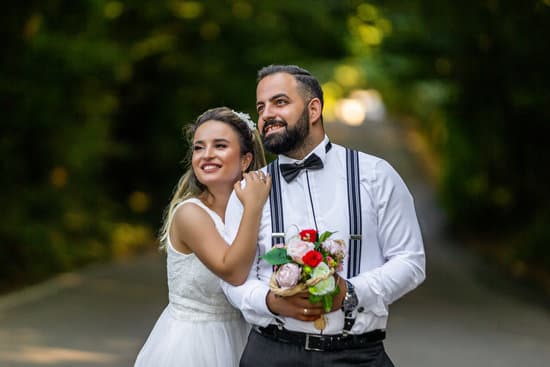
Your wedding ceremony script sets the tone for your special day. Whether you’re planning a traditional religious ceremony or a modern non-religious celebration, crafting the perfect script is essential. From traditional elements to personalized touches, there are countless ways to create a meaningful and memorable wedding ceremony. In this article, we’ll explore everything you need to know to set the stage for the perfect wedding ceremony script.
As you begin planning your wedding, one of the most important aspects to consider is your ceremony script. The words spoken during your ceremony will hold immense significance as you exchange vows and commit to a lifetime together. Whether you’re looking for inspiration for a traditional or personalized script, this guide will provide valuable tips and ideas for creating a beautiful and unforgettable wedding ceremony.
From exploring classic elements and traditions to adding symbolic rituals and gestures, this article will cover every aspect of creating the perfect wedding ceremony script. We’ll also provide sample scripts for different types of ceremonies, offer advice on working with your officiant, and share tips for handling unexpected hiccups during the ceremony.
By the end of this guide, you’ll be equipped with everything you need to create a meaningful and memorable wedding ceremony that truly reflects your love story.
Traditional Wedding Ceremony Script
The traditional wedding ceremony script is a timeless and classic way to celebrate the union of two people in love. This type of script typically includes well-known elements such as processional, vows, exchange of rings, and pronouncement, among others. The beauty of a traditional wedding ceremony lies in its familiarity and significance, as it has been passed down through generations.
One of the most iconic parts of a traditional wedding ceremony is the exchange of vows. These heartfelt promises are at the heart of every marriage and symbolize the commitment that the couple is making to each other. In addition to this, the exchange of rings is another key element in a traditional ceremony. The circular shape of the rings represents never-ending love and commitment.
Other traditions that are often included in a traditional wedding ceremony script are readings or poems, music, unity candle lighting, and the declaration of marriage by the officiant. These add depth and personalization to the ceremony while still maintaining a sense of tradition and timelessness.
Incorporating some or all of these classic elements into your wedding ceremony script can create a beautiful and meaningful experience for both you and your guests. It’s important to remember that while tradition provides a strong foundation for your ceremony, there is always room for personalization and customization to make it truly unique to you as a couple.
| Traditional Ceremony Element | Description |
|---|---|
| Exchange of Vows | Heartfelt promises symbolizing commitment |
| Exchange of Rings | Rings symbolizing never-ending love |
| Readings or Poems | Add depth and personalization to the ceremony |
| Unity Candle Lighting | Symbolic gesture representing unity as a couple |
Personalized Wedding Ceremony Script
When it comes to your wedding ceremony, creating a personalized script can make the event even more special. There are several ways to customize your ceremony script to reflect your unique love story and personalities. One popular idea is to write your own vows, which allows you to express your deepest feelings and promises to your partner in your own words.
Another way to personalize your wedding ceremony script is to incorporate cultural or religious traditions that are meaningful to you and your partner. This can include rituals such as a unity candle lighting, handfasting, or a sand ceremony. Embracing these traditions can add depth and significance to your ceremony.
In addition, consider including readings or poems that hold special meaning for you as a couple. Whether it’s a favorite song lyric, a passage from a beloved book, or a heartfelt poem, these readings can add an emotional and personal touch to your ceremony.
| Ways to Personalize Your Wedding Ceremony Script | Description |
|---|---|
| Writing Your Own Vows | Expressing personal feelings and promises in your own words |
| Incorporating Cultural or Religious Traditions | Add depth and significance through unity candle lighting, handfasting, or sand ceremony |
| Including Readings or Poems | Adding an emotional and personal touch with meaningful readings or poems |
Sample Wedding Ceremony Scripts
Non-Religious Ceremony Script
For couples who are not religious or want a more secular ceremony, crafting a non-religious wedding ceremony script can be the perfect way to reflect your beliefs and values. Consider incorporating personal vows, readings from literature or poetry, and music that holds special meaning to you both. Including a unity ritual such as a sand ceremony or tree planting can also add depth and symbolism to your non-religious ceremony.
Religious Ceremony Script
For couples who want to honor their faith and traditions, crafting a religious wedding ceremony script can be deeply meaningful. Depending on your faith tradition, you may include prayers, blessings, scripture readings, and hymns. It’s important to work closely with your officiant or religious leader to ensure that the script follows the guidelines of your specific religious tradition while still reflecting the uniqueness of your love story.
Cultural Ceremony Script
For couples who want to incorporate elements of their cultural heritage into their wedding ceremony, crafting a cultural wedding ceremony script can be a beautiful way to honor family traditions and customs. Consider including rituals such as a traditional Chinese tea ceremony or Indian garland exchange.
Including family members in special roles within the ceremony can also add depth and significance. Working with relatives or elders within your community can provide valuable insights and guidance for creating a culturally rich wedding ceremony script that honors your heritage.
Symbolic Rituals and Gestures
Incorporating Cultural Traditions
One way to add significance to your wedding ceremony is by incorporating cultural traditions that hold special meaning for you and your partner. This could involve rituals such as the breaking of a glass in Jewish ceremonies, handfasting in Celtic traditions, or a unity candle lighting from Christian customs. By embracing these traditions, you not only honor your heritage but also bring depth and richness to the ceremony.
Creating Personalized Rituals
For couples who want to make their ceremony unique, creating personalized rituals can be a wonderful way to add meaning. This could involve activities such as planting a tree together, writing love letters to each other to be opened on future anniversaries, or having a sand blending ritual symbolizing the merging of two lives. These personalized rituals not only enrich the ceremony but also provide beautiful memories that will last a lifetime.
Expressing Shared Passions
Another way to infuse meaning into your wedding ceremony is by expressing shared passions through symbolic gestures. For example, if both partners share a love for literature, exchanging books with personal inscriptions during the ceremony can be a touching gesture.
If nature holds significance for both partners, planting a tree or releasing butterflies can symbolize growth and freedom within the relationship. By incorporating these shared passions into the ceremony script, couples can create an intimate and heartfelt experience for themselves and their loved ones.
By considering these ideas and suggestions, couples can create meaningful moments during their wedding ceremony that are reflective of their love story and values. Symbolic rituals and gestures offer an opportunity for couples to express themselves authentically on their special day, making it truly unforgettable for everyone involved.
Officiant’s Role
When it comes to creating the perfect wedding ceremony script, working closely with your officiant is crucial. Here are some tips on how to collaborate effectively with your officiant to craft a script that reflects your love story and values:
- Communicate openly: Schedule regular meetings or calls with your officiant to discuss your vision for the ceremony. Share important details about your relationship, religious or cultural backgrounds, and any specific rituals or readings you want to include.
- Customize the script: Work together to personalize the ceremony script to make it meaningful and unique to you as a couple. Whether it’s incorporating personal vows, elements of traditional ceremonies, or special readings, make sure the script reflects who you are as a couple.
- Be open to suggestions: Your officiant may have valuable input based on their experience in conducting weddings. Be open to their ideas for creating a harmonious and flowing ceremony script that resonates with both of you.
Partnering with your officiant is an essential part of creating a wedding ceremony that represents your love and commitment. By collaborating closely with them, you can ensure that every aspect of the script reflects your relationship and sets the tone for a memorable celebration of love.
Additionally, it’s important to remember that the role of the officiant extends beyond simply delivering the script. They also play a key part in setting the tone for the ceremony and guiding guests through each stage. A supportive and communicative relationship with your officiant will result in a beautifully crafted wedding ceremony that will be cherished by all in attendance.
Handling Unexpected Situations
During a wedding ceremony, unexpected situations can arise that may cause stress or anxiety for the couple and their guests. It’s important to be prepared for any potential hiccups and have a plan in place to handle them gracefully. Here are some tips for navigating unexpected situations during the ceremony:
- Stay calm: It’s essential to remain calm and composed, regardless of the situation. Take a deep breath, assess the problem, and approach it with a clear mind.
- Communicate effectively: If something goes off-script or doesn’t go as planned, effective communication is key. Whether it’s with your officiant, wedding coordinator, or other key individuals, make sure everyone is on the same page and understands how to proceed.
- Have a backup plan: It’s wise to have contingency plans in place for common issues that may arise during the ceremony, such as technical difficulties with sound equipment, inclement weather for outdoor ceremonies, or tardiness of key individuals.
Remember that no wedding ceremony is completely immune to unforeseen circumstances. By staying flexible and maintaining a positive attitude, you can navigate any unexpected hiccups with grace and ensure that your special day remains memorable for all the right reasons. Handling unexpected situations calmly can also set an example for how you as a couple will handle challenges in your future together.
Lastly these tips come from years of experience working on weddings ceremonies from officiants at different venues so we hope you find them useful.
Tips for a Memorable and Meaningful Wedding Ceremony
In planning your wedding ceremony script, it is essential to take into consideration the elements that will make the occasion memorable and meaningful for both you and your guests. By incorporating personalized touches and symbolic rituals, you can create a ceremony that truly reflects your love story and values.
Whether you opt for a traditional or non-religious ceremony, the key is to work closely with your officiant to ensure that every word spoken resonates with the beauty of your relationship.
One of the most effective ways to make your wedding ceremony unforgettable is by personalizing the script. Whether it’s through writing your own vows, choosing meaningful readings, or including cultural traditions, infusing personal touches will make the ceremony feel genuine and authentic. Additionally, consider adding symbolic rituals or gestures such as lighting a unity candle, planting a tree, or exchanging meaningful gifts as a representation of your commitment to each other.
Finally, when planning your wedding ceremony script, it’s important to anticipate any unexpected situations that may arise during the event. Keeping an open line of communication with your officiant and having a backup plan in place will help ensure that any unforeseen hiccups are navigated seamlessly.
Remember that at the end of the day, what matters most is celebrating your love and commitment surrounded by those who mean the most to you. With careful planning and thoughtful execution, you can create a beautiful and unforgettable wedding ceremony that sets the stage for a lifetime of happiness together.
Frequently Asked Questions
What Do Officiants Say at Weddings Script?
Officiants at weddings typically begin by welcoming the guests and acknowledging the significance of the occasion. They may also speak about the joining of two individuals in marriage and the commitment they are making to each other.
It’s common for officiants to share some inspirational words or a reading that reflects the couple’s values and beliefs. Finally, they will lead the couple through their vows and exchange of rings before officially pronouncing them married.
What Do They Say at a Wedding Ceremony?
At a wedding ceremony, there are several key components that are typically included in the script. This can vary depending on the couple’s preferences and any cultural or religious traditions they wish to incorporate.
Common elements include an opening statement, readings or poems, exchange of vows, exchanging of rings, any special ceremonies like a unity candle or sand ceremony, and finally the pronouncement of marriage by the officiant.
What Is the Traditional Wedding Ceremony Verbage?
The traditional wedding ceremony verbiage often includes phrases like “Dearly beloved,” “For richer or poorer,” “In sickness and health,” “Till death do us part,” and “By the power vested in me.” These have been used for generations in Western wedding ceremonies to symbolize love, commitment, and fidelity between partners.
Additionally, traditional ceremonies may also feature traditional prayers or blessings for the newlyweds as they embark on their life together.




